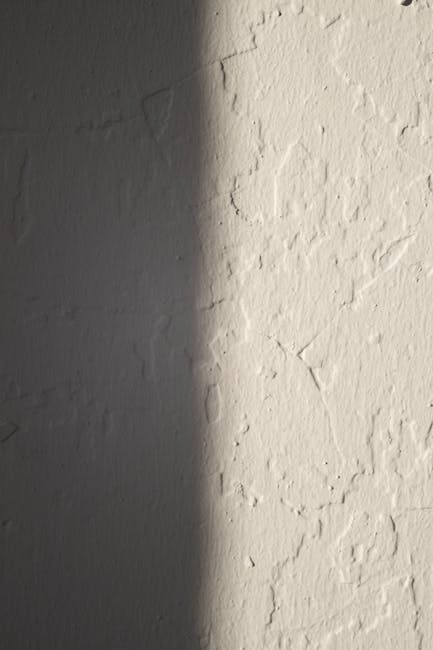Are you feeling overwhelmed by anxiety? Do you wish there was a simple, accessible way to find relief? In this blog post, we’ll explore a variety of easy-to-implement strategies for anxiety relief that can help you regain control and enjoy life more fully. Stick around to discover how you can transform your approach to anxiety and start living a more relaxed, fulfilling life.
Key Takeaways
- Understanding anxiety and its impact on your life.
- The importance of simple, accessible relief methods.
- Physical and mental activities for anxiety relief.
- Natural and environmental approaches to managing anxiety.
- Social and emotional strategies for reducing anxiety.
- Lifestyle adjustments for long-term benefits.
Introduction to Simple Anxiety Relief
Understanding Anxiety and Its Impact
Anxiety is more than just feeling stressed or worried. It’s a type of fear response that can become chronic and debilitating if not addressed. It can affect your physical health, relationships, and overall quality of life. But the good news is, there are many simple and effective ways to manage anxiety.
The Importance of Simple, Accessible Relief Methods
When it comes to anxiety relief, simplicity is key. Complex or time-consuming methods can often add to your stress rather than alleviate it. That’s why we’re focusing on simple, accessible strategies that you can easily incorporate into your daily routine.

Physical and Mental Activities for Anxiety Relief
Get More Physical Activity
Benefits of Regular Exercise on Mood
Regular physical activity is a powerful mood booster. It releases endorphins, the body’s natural feel-good chemicals, and can help reduce feelings of anxiety and depression. Plus, it’s a great way to distract your mind from anxious thoughts.
Types of Physical Activities Recommended
You don’t have to run a marathon to reap the benefits of exercise. Simple activities like walking, cycling, or dancing can be just as effective. The key is to find something you enjoy and make it a regular part of your routine. For more on this, check out our post on ways to relieve physical symptoms of anxiety.
Practice Mindfulness
Definition and Benefits of Mindfulness
Mindfulness is the practice of focusing your attention on the present moment, without judgment. It can help you break free from the cycle of anxiety by teaching you to observe your thoughts and feelings without getting caught up in them. For a deeper dive into mindfulness, you can visit our post on how to calm your body from anxiety.
Simple Mindfulness Exercises for Daily Practice
Mindfulness can be practiced in many ways, from formal meditation to simple breathing exercises. Even just taking a few moments to focus on your breath can help you feel more grounded and less anxious.
Take a Yoga Class or Try Yoga at Home
How Yoga Combines Physical Movement and Mental Focus
Yoga is a mind-body practice that combines physical postures, breathing exercises, and meditation. It can help reduce stress, improve mental clarity, and promote a sense of calm.
Suggestions for Beginners
If you’re new to yoga, start with a beginner’s class or try some beginner-friendly yoga videos online. Remember, the goal is not to perfect each pose but to connect with your body and breath.

Natural and Environmental Approaches
Spend Time in Nature
The Calming Effect of Natural Surroundings
Spending time in nature can have a profound calming effect. The sights, sounds, and smells of the natural world can help you feel more grounded and less anxious.
Ideas for Nature Activities
Try going for a walk in a local park, gardening, or even just sitting outside and observing the world around you. For more ideas on how to use nature for anxiety relief, check out our post on release anxiety tension.
Practice Deep Breathing Exercises
Techniques for Activating the Body’s Relaxation Response
Deep breathing can activate the body’s relaxation response, helping to reduce stress and anxiety. It’s a simple technique that you can practice anywhere, anytime.
Step-by-Step Guide to Deep Breathing
Start by finding a comfortable position. Close your eyes and take a slow, deep breath in through your nose, filling your belly with air. Hold your breath for a moment, then slowly exhale through your mouth. Repeat this process for a few minutes, focusing your attention on your breath.

Social and Emotional Strategies
Spend Time with a Pet
The Psychological Benefits of Pet Interaction
Interacting with a pet can have significant psychological benefits. Pets provide unconditional love and companionship, and caring for a pet can give you a sense of purpose and routine.
Ideas for Activities with Pets
Try going for a walk with your dog, playing with your cat, or even just sitting quietly with your pet. If you don’t have a pet, consider volunteering at a local animal shelter.
Connect with Others
The Role of Supportive Relationships in Stress Relief
Having supportive relationships can play a crucial role in stress relief. Connecting with others can help you feel understood and less alone in your struggles with anxiety.
Tips for Building and Maintaining Strong Connections
Try reaching out to a friend or family member, joining a support group, or seeking professional help if needed. Remember, it’s okay to ask for help. For more on this, check out our post on relieve of anxieties.
Laugh More
How Laughter Benefits Mental Health
Laughter really is the best medicine. It releases endorphins, reduces stress, and can even boost your immune system.
Ways to Incorporate More Laughter into Your Life
Try watching a funny movie, reading a humorous book, or spending time with people who make you laugh.

Lifestyle Adjustments for Long-Term Benefits
Consider Supplements
Overview of Supplements That May Reduce Anxiety
Certain supplements, such as magnesium, omega-3 fatty acids, and B vitamins, may help reduce anxiety. However, it’s important to talk to your doctor before starting any new supplement regimen.
Guidelines for Safe Supplement Use
Always follow the recommended dosage and be aware of potential side effects. And remember, supplements should not replace a healthy diet and lifestyle.
Avoid Unhealthy Habits
Identifying and Avoiding Stress-Inducing Habits
Certain habits, like excessive caffeine consumption, lack of sleep, and overuse of technology, can exacerbate anxiety. Identifying and avoiding these habits can go a long way in managing your anxiety.
Healthier Alternatives to Common Unhealthy Coping Mechanisms
Try replacing unhealthy habits with healthier ones, like regular exercise, a balanced diet, and good sleep hygiene.
Get Enough Sleep
The Relationship Between Sleep and Stress
Sleep and stress are closely linked. Lack of sleep can increase stress hormones, while high stress levels can interfere with sleep.
Tips for Improving Sleep Quality
Try establishing a regular sleep schedule, creating a relaxing bedtime routine, and making your sleep environment as comfortable as possible.
Keep a Journal
Benefits of Journaling for Stress Management
Journaling can be a powerful tool for stress management. It allows you to express your thoughts and feelings, gain insight into your anxiety, and track your progress over time.
Suggestions for Starting a Journaling Practice
Try setting aside a few minutes each day to write in your journal. You can write about your thoughts and feelings, what’s happening in your life, or anything else that comes to mind.
Seek Counseling
When to Consider Professional Help
If your anxiety is severe or interfering with your daily life, it may be time to seek professional help. A mental health professional can provide you with the tools and support you need to manage your anxiety effectively.
What to Expect from Counseling for Anxiety Relief
Counseling for anxiety typically involves cognitive-behavioral therapy, which can help you identify and change negative thought patterns that contribute to anxiety.
Conclusion
Recap of Simple Anxiety Relief Strategies
In this post, we’ve explored a variety of simple, accessible strategies for anxiety relief, from physical and mental activities to natural and environmental approaches, social and emotional strategies, and lifestyle adjustments.
Encouragement to Try Multiple Methods for Best Results
Remember, there’s no one-size-fits-all approach to anxiety relief. What works for one person may not work for another. So don’t be afraid to try different strategies and see what works best for you. With patience and persistence, you can find your own path to a calmer, more relaxed life.
Remember, you’re not alone in this journey. Reach out to others for support, and don’t hesitate to seek professional help if needed. You have the power to manage your anxiety and live a happier, healthier life. So why wait? Start your journey to simple anxiety relief today.
Ease Your Mind: Simple Anxiety Relief FAQ
What is anxiety and how can I recognize it?
Anxiety is a natural response to stress, characterized by feelings of fear, dread, and uneasiness. It might manifest through physical symptoms such as increased heart rate, sweating, trembling, or difficulty concentrating. Recognizing anxiety involves paying attention to these emotional and physical responses to stressors in your environment or thoughts.
Can simple lifestyle changes really help with anxiety?
Yes, lifestyle changes can significantly impact anxiety levels. Incorporating regular physical activity, maintaining a healthy diet, ensuring adequate sleep, and practicing relaxation techniques such as deep breathing or meditation can all contribute to reducing anxiety symptoms.
What are some quick relaxation techniques for anxiety relief?
Quick relaxation techniques include deep breathing exercises, progressive muscle relaxation, visualization, or practicing mindfulness. These can be done in a few minutes and are effective in lowering anxiety levels by focusing your mind and calming your body.
How does physical exercise affect anxiety?
Physical exercise releases endorphins, chemicals in your brain that act as natural painkillers and mood elevators. Regular exercise has been shown to decrease overall levels of tension, elevate and stabilize mood, improve sleep, and improve self-esteem. Even five minutes of aerobic exercise can stimulate anti-anxiety effects.
Can diet influence my anxiety levels?
Yes, diet plays a crucial role in regulating anxiety. Consuming a balanced diet rich in vegetables, fruits, lean protein, and whole grains can help stabilize blood sugar levels and support brain health, reducing anxiety symptoms. Avoiding excessive caffeine and sugar is also beneficial as they can increase jitteriness and mood swings.
What role does sleep play in managing anxiety?
Sleep and anxiety have a bidirectional relationship. Poor sleep can increase anxiety levels, and high anxiety can make it harder to fall asleep. Establishing a regular sleep routine, creating a comfortable sleep environment, and avoiding screens before bedtime can improve sleep quality and, in turn, help manage anxiety.
How can I manage anxiety without medication?
Managing anxiety without medication involves adopting healthy lifestyle habits, such as regular exercise, a balanced diet, and sufficient sleep. Additionally, practicing mindfulness, meditation, and stress management techniques can be effective. It’s also important to seek support from friends, family, or a professional therapist.
When should I seek professional help for my anxiety?
If anxiety is interfering with your daily life, causing you distress for an extended period, or if self-help techniques and lifestyle changes aren’t enough, it’s important to seek professional help. A mental health professional can offer personalized guidance and treatment options, including therapy and, if necessary, medication.



